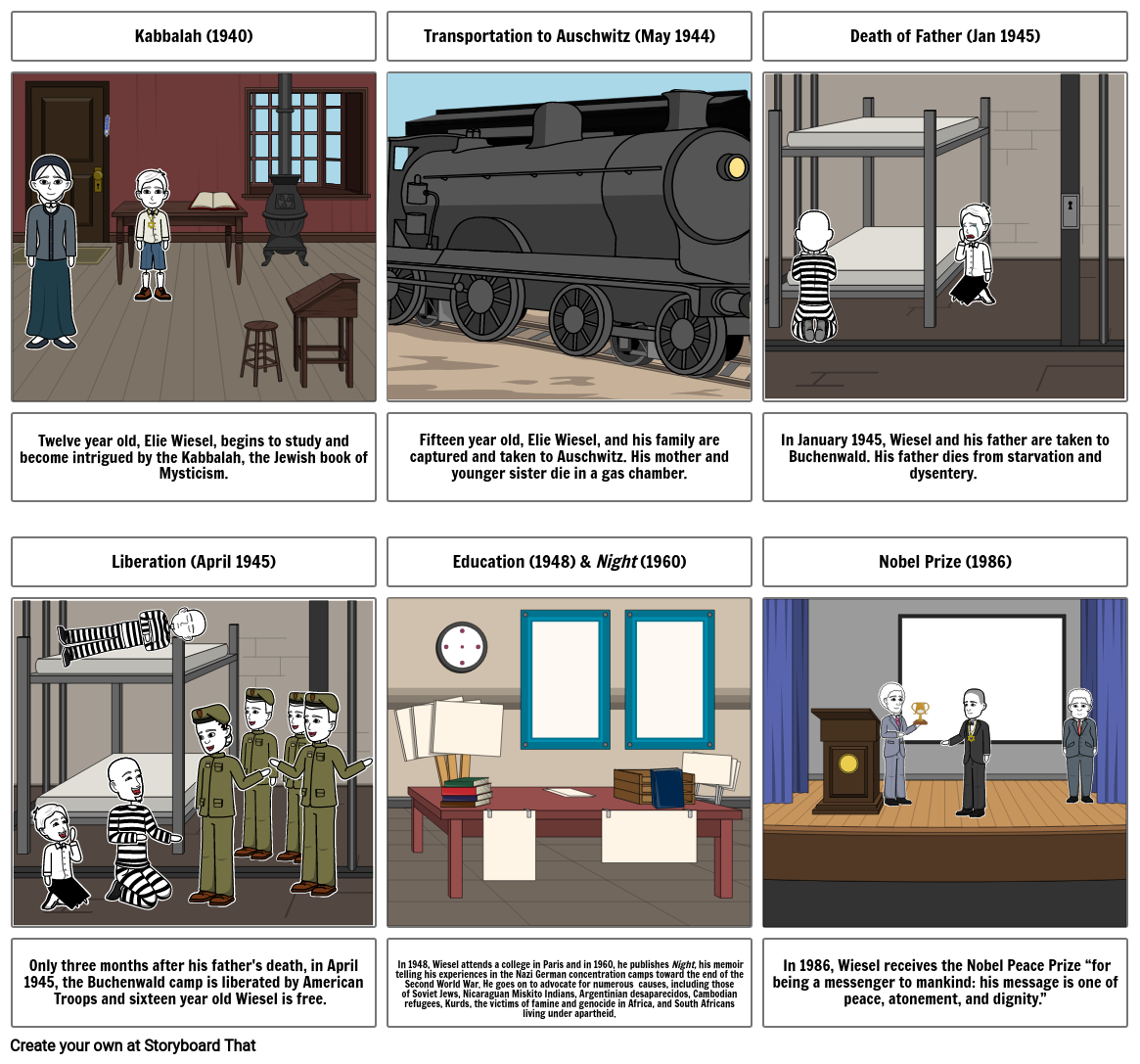Elie Wiesel Nobel Prize Storyboard

Siužetinės Linijos Tekstas
- Kabbalah (1940)
- Transportation to Auschwitz (May 1944)
- Death of Father (Jan 1945)
- Twelve year old, Elie Wiesel, begins to study and become intrigued by the Kabbalah, the Jewish book of Mysticism.
- Liberation (April 1945)
- Fifteen year old, Elie Wiesel, and his family are captured and taken to Auschwitz. His mother and younger sister die in a gas chamber.
- Education (1948) & Night (1960)
- In January 1945, Wiesel and his father are taken to Buchenwald. His father dies from starvation and dysentery.
- Nobel Prize (1986)
- Only three months after his father's death, in April 1945, the Buchenwald camp is liberated by American Troops and sixteen year old Wiesel is free.
- In 1948, Wiesel attends a college in Paris and in 1960, he publishes Night, his memoir telling his experiences in the Nazi German concentration camps toward the end of the Second World War. He goes on to advocate for numerous causes, including those of Soviet Jews, Nicaraguan Miskito Indians, Argentinian desaparecidos, Cambodian refugees, Kurds, the victims of famine and genocide in Africa, and South Africans living under apartheid.
- In 1986, Wiesel receives the Nobel Peace Prize “for being a messenger to mankind: his message is one of peace, atonement, and dignity.”
Sukurta daugiau nei 30 milijonų siužetinių lentelių

